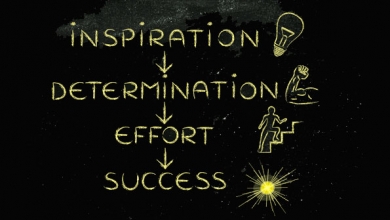How to lead your company to greatness.

If you’ve been struggling for years to make your company a great one with little to show for it, you may find my belief that it’s not that hard to be great offensive.
That doesn’t mean it’s not true.
So let’s exchange ideas, focus on aspects intrinsic to greatness and do so in a way that is rewarding for both of us.
-
Let’s Exchange Ideas
This means we should develop a common understanding of the challenges and the objectives and learn from one another as we think together. We will both listen with the intent to understand rather than to be right, and we will do so respecting the experience and intentions of the other.
- Every great organization does exactly that with employees, customers, suppliers, investors and the community. It’s not that hard.
In my experience many companies fail to do that in at least one arena. It’s much more common to see management with a “know all, tell all” approach with employees and suppliers, with a “victim” approach to customer expectations, a “hey don’t really care about us” view of investors, or a “we don’t want to pay taxes or keep the building and grounds nice” disregard for the community.Maximized profits and greatness are NOT synonymous. In fact, they are usually contrary. But greatness and strong profits do go hand in hand.
What do you think?
- Every great organization does exactly that with employees, customers, suppliers, investors and the community. It’s not that hard.
-
Focus on aspects intrinsic to greatness
Think of a great person; apply those characteristics to your business. Greatness requires consistently executed core values of collective success.
- Truly great organizations seek the prosperity of all their partners. A commitment to joint success appears early in product design, in establishing target costs, in performance priorities and execution, in employee participation and growth and demonstrated community values. It’s not that hard.
Many well known companies are highly profitable but at the expense of customers, suppliers, employees, investors and the community. How can profound profits be at the expense of investors? Easily. True investors seek long-term return and are not amoral. That includes ethical bankers. Day-traders love the game, not your company.Would you call Wal-Mart a great company? I would not, based on their treatment of employees. Cargill? I would not, based on the carcasses of their abandoned facilities dotting the landscape. GE? I would not, based on their historic mistreatment of many small suppliers. Eaton? I would not, based on their decision to escape taxes through inversion. AT&T is notorious for lousy customer service. The list of highly profitable companies that give foolish bonuses to executives at the expense of investors is legion.
What are the aspects you believe to be intrinsic to greatness? Do you have a role model?
- Truly great organizations seek the prosperity of all their partners. A commitment to joint success appears early in product design, in establishing target costs, in performance priorities and execution, in employee participation and growth and demonstrated community values. It’s not that hard.
-
Do so in a way that is rewarding for both of us
Even though we may not agree, we should both feel enriched by our interactions.
- Business challenges are very real. The problems are not always easily identified, much less easily eliminated.
Even great companies face difficulties. They utilize the skills and interests of all their partners in preventing and mitigating them, consistent with core values and shared mission.Great companies have an unhappy customer, change suppliers, fire people, limit shareholder distributions, and say “no” to community requests. They are not perfect. They never lose focus on what success looks like, knowing that on occasion it will be missed. From those incidents, they take the time to learn and get better. It’s not that hard.
I’m interested in learning how you define the impediments to greatness for your organization.
- Business challenges are very real. The problems are not always easily identified, much less easily eliminated.
If your company is not gaining on greatness every day, it’s likely as simple as lack of focus, a mysterious target, guidelines that change frequently, or that the wrong measuring stick being used. Those can all be fixed.
Greatness of your organization can be right around the corner. I encourage you to put more weight on the “how” than on the “why not.”
As published by IndustryWeek

